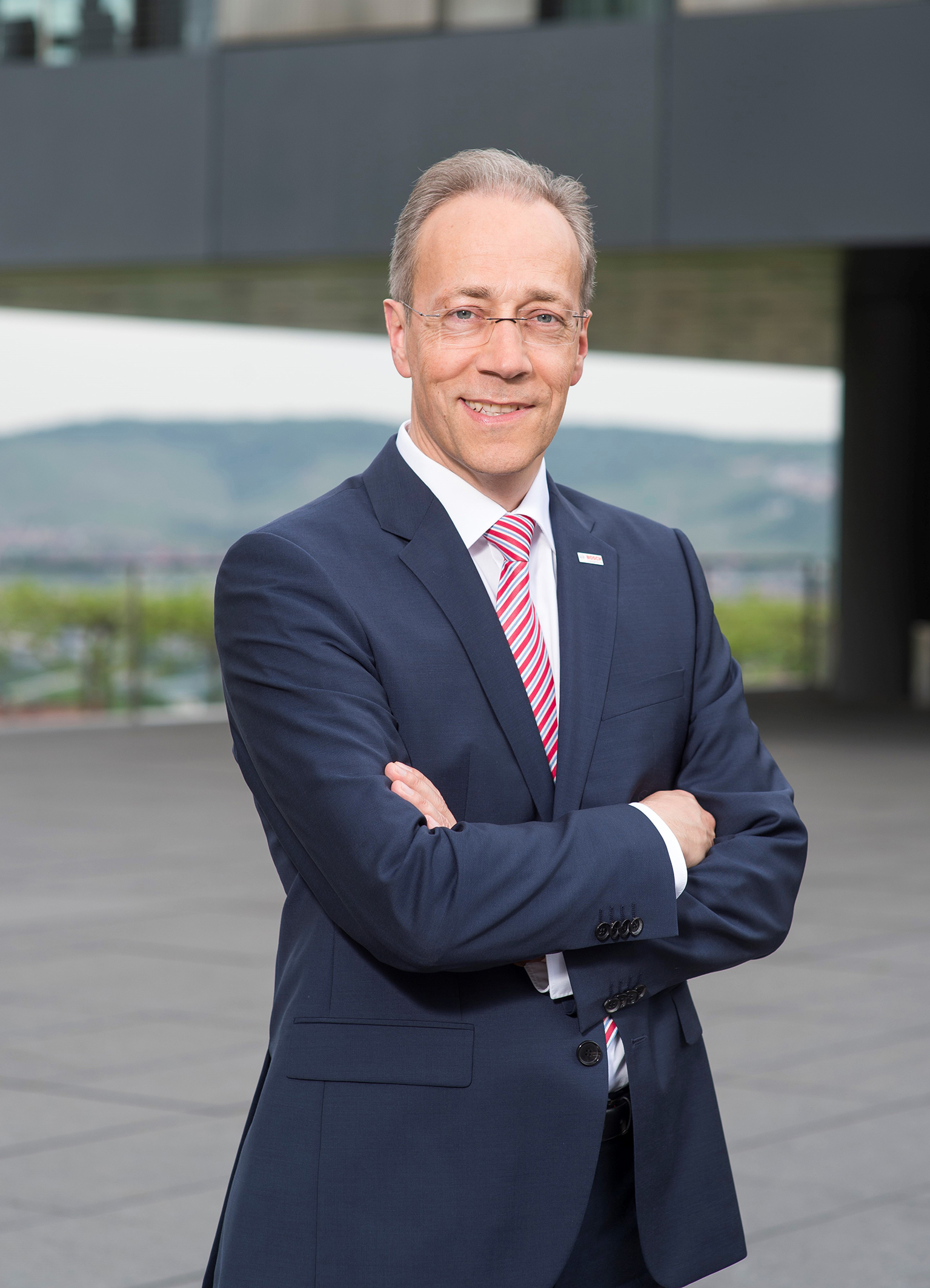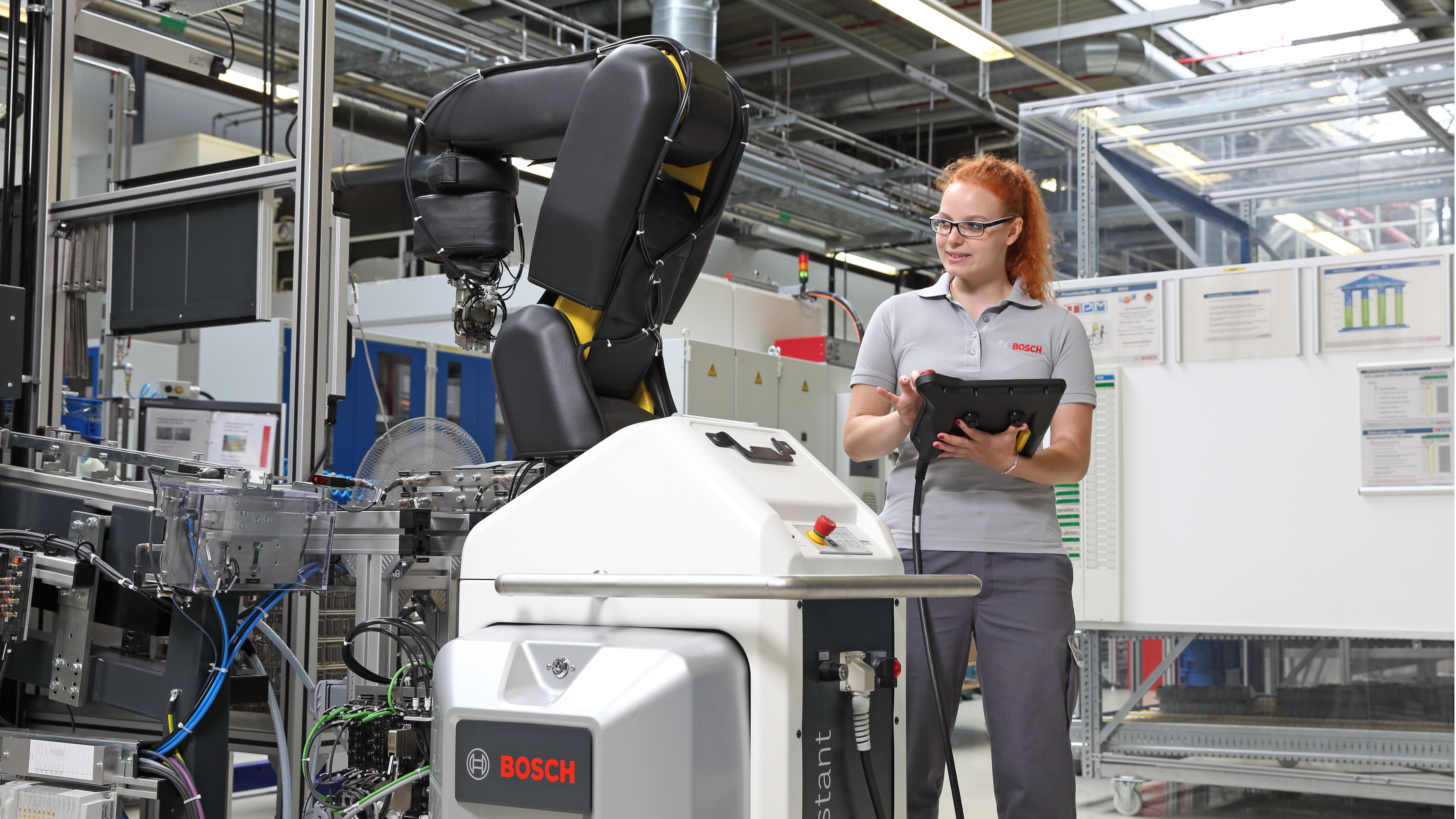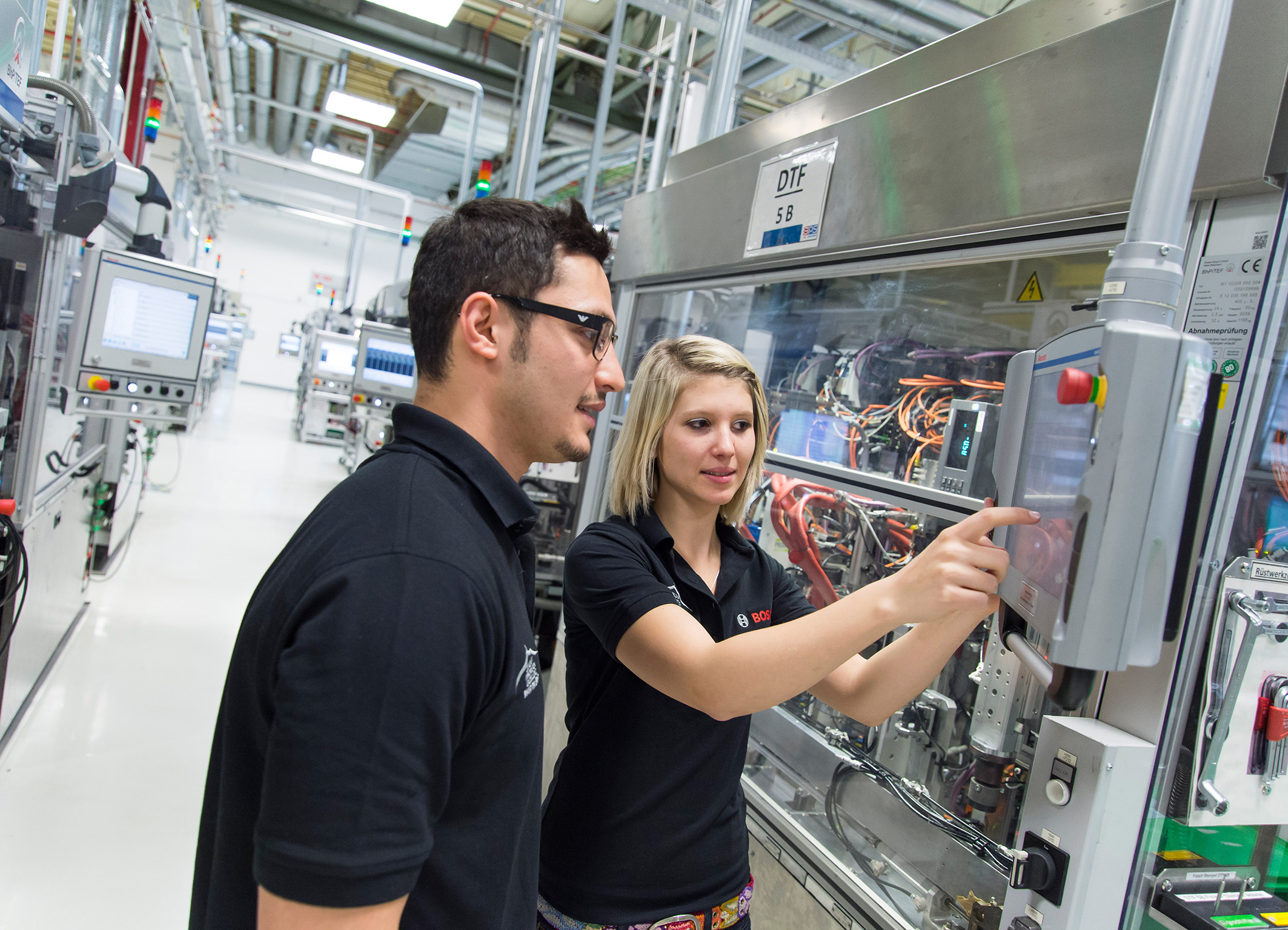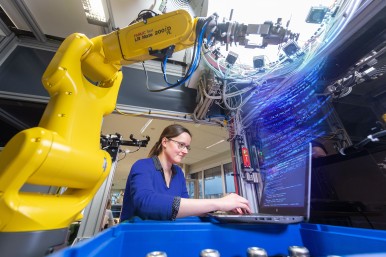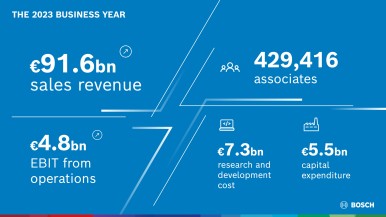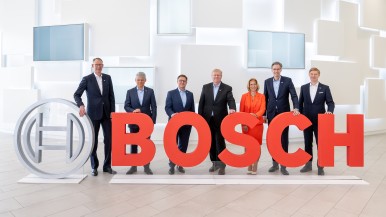Stuttgart – Digitalization and connectivity are transforming manufacturing at breakneck speed. Connected production lines permanently monitor their own condition and warn experts before breakdowns. Robots are collaborating ever closer with workers in manufacturing and logistics, boosting productivity. In Germany alone, McKinsey forecasts a revenue potential of just under 9 billion euros in the digitalization of manufacturing by 2020. The greatest potential in the long term is not only in hardware or device connectivity, but also in smart software – the essential enabler of internet of things applications. Bosch has made structural changes in a bid to continue growing in the software business as well: at the beginning of January 2018, a new operating unit, Bosch Connected Industry, began operations with 500 associates in Germany, Hungary, and China. Bosch is pooling all its Industry 4.0 activities in this new unit, including the fields of software and services. “We want to make the most of the potential inherent in connected industry, which means we need to assemble the best possible team,” says Bosch board of management member Dr. Stefan Hartung, whose responsibilities include manufacturing coordinating and, in turn, Industry 4.0. By 2020, the Bosch Group aims to generate more than a billion euros with Industry 4.0.
About Bosch
The Bosch Group is a leading global supplier of technology and services. It employs roughly 429,000 associates worldwide (as of December 31, 2023). The company generated sales of 91.6 billion euros in 2023. Its operations are divided into four business sectors: Mobility, Industrial Technology, Consumer Goods, and Energy and Building Technology. With its business activities, the company aims to use technology to help shape universal trends such as automation, electrification, digitalization, connectivity, and an orientation to sustainability. In this context, Bosch’s broad diversification across regions and industries strengthens its innovativeness and robustness. Bosch uses its proven expertise in sensor technology, software, and services to offer customers cross-domain solutions from a single source. It also applies its expertise in connectivity and artificial intelligence in order to develop and manufacture user-friendly, sustainable products. With technology that is “Invented for life,” Bosch wants to help improve quality of life and conserve natural resources. The Bosch Group comprises Robert Bosch GmbH and its roughly 470 subsidiary and regional companies in over 60 countries. Including sales and service partners, Bosch’s global manufacturing, engineering, and sales network covers nearly every country in the world. Bosch’s innovative strength is key to the company’s further development. At 136 locations across the globe, Bosch employs some 90,000 associates in research and development, of which nearly 48,000 are software engineers.
The company was set up in Stuttgart in 1886 by Robert Bosch (1861–1942) as “Workshop for Precision Mechanics and Electrical Engineering.” The special ownership structure of Robert Bosch GmbH guarantees the entrepreneurial freedom of the Bosch Group, making it possible for the company to plan over the long term and to undertake significant upfront investments in the safeguarding of its future. Ninety-four percent of the share capital of Robert Bosch GmbH is held by Robert Bosch Stiftung GmbH, a charitable foundation. The remaining shares are held by Robert Bosch GmbH and by a corporation owned by the Bosch family. The majority of voting rights are held by Robert Bosch Industrietreuhand KG. It is entrusted with the task of safeguarding the company’s long-term existence and in particular its financial independence – in line with the mission handed down in the will of the company’s founder, Robert Bosch.
Additional information is available online at www.bosch.com, www.iot.bosch.com, www.bosch-press.com.





